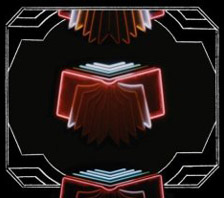
The past few years my reading habits have swung on a drastic pendulum between borderline obsessiveness and willing ignorance. While in Seminary I read like a mofo and I liked it. I read for work and in my spare time I read for fun. There was a lot of reading going on! Then . . . I decided I didn't want to read anymore, I wanted to "live." I felt that I had been primarily living cereberally instead of existentially and there was some truth to my critique. So, I stopped for awhile. Eventually I began reading again, but nothing overtly theological as before - instead a gigantic biography of Bob Dylan, the autobiography of Johnny Cash, and The Wilco Book. This past fall I had the desire to read more theological material again for the first time. Perhaps it was no coincidence that many of the books I was now reading on Eastern Orthodox spirituality placed an emphasis on the human person and "incarnational living" (which I admittedly do a poor job of). At any rate, the last few weeks I have been re-reading Dostoevsky's The Brothers Karamazov. I've enjoyed the book a lot more the second time around partially because I'm a little older, have a better translation this time, and now am Orthodox myself, which gives me a better context for many of the characters actions in Orthodox Russia. The author places this quote in the mouth of one of his characters, Elder Zossima:
"There is only one salvation for you: take yourself up, and make yourself responsible for all the sins of men. For indeed it is so, my friend, and the moment you make yourself sincerely responsible for everything and everyone, you will see at once that it is really so, that it is you who are guilty on behalf of all and for all. Whereas by shifting your own laziness and powerlessness onto others, you will end by sharing in Satan's pride and murmuring against God. I think thus of Satan's pride: it is difficult for us on earth to comprehend it, and therefore, how easy it is to fall into error and partake of it, thinking, moreover, that we are doing something great and beautiful."
My int ital reaction to this quote is one of affirmation; I feel edified and encouraged. It doesn't take long though, before I begin to reconsider. How is this possible? It is at the very least a challenge to my own individualistic sense of accomplishment. I don't believe what Dostoevsky is trying to say here is that there isn't any difference between a regular ol' sinful Joe like myself and a mass murderer, because I think there is. I'm pretty sure there's a difference between myself and Mother Theresa as well. However, saying as much is not mutually exclusive with what I believe his main point to be here: that the first step toward God is humbling myself before Him. It is only when I can call myself along with the Apostle Paul -- "the worst of sinners," the sort of sinner who takes some responsibility in all sin, no matter how grievous -- that I receive Love and can properly love my fellow man.


